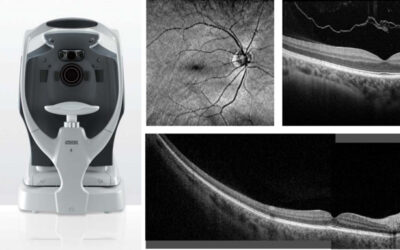Vaccines and your vision

While we seem to have dodged the worst of Covid-19 in New Zealand, we’re now relying on finding a vaccine before we can expect to travel, work, and play as freely as before the pandemic.
Although hotly debated, common vaccines are to thank for the reduced incidence of several contagious diseases worldwide, and with them a reduced risk of serious complications including blindness.

Over time, we’ve become complacent about these risks and immunisation rates around the world are falling. Routine vaccinations such as MMR are being neglected by many as they believe “it won’t happen to me/my family”.
If anything, this current situation has shown that it can happen – it can happen to anyone, from any economic background, anywhere.
While we don’t yet have a vaccine for Covid-19, we do have vaccines for other highly contagious life-threatening diseases such as meningitis, measles, and rubella.
Unknown to many, these three diseases also have potential complications leading to vision loss or permanent blindness. Let’s take a look at how vaccinations have worked to prevent these cases and keep our families safe over the past few decades.
Rubella

Rubella is of the highest concern in pregnant women due to the likelihood of causing congenital rubella syndrome, which leads to a wide variety of complications that can severely impact the baby’s quality of life.
A worldwide epidemic from 1963-65, in which 12.5 million cases were reported in America alone, saw thousands of cases of congenital rubella syndrome and associated complications including eye disease (in 78% of cases), hearing defects (in 66% of cases), cardiac abnormalities (in 58% of cases) and multiorgan disease (in 88% of cases).
The most common eye diseases in babies and children with congenital rubella are glaucoma, cataract, microcornea, keratitis, uveitis, and pigmented retinopathy – while some of these subside over a number of weeks, others may become permanent.
By 1969 a vaccine had been developed for rubella, and was offered across the globe. It’s now commonly issued in NZ as part of a child’s immunisation schedule along with measles and mumps (in the form of the MMR vaccine).
Thankfully, rubella is now rare in New Zealand because of high immunisation rates – there have been no reported cases in NZ since 1998 – but the disease remains prevalent in developing countries.
Measles
When setting up your workstation for peak productivity and comfort, there are three key things to consider: your desk height, your lighting, and your display settings.
 Extremely contagious, measles unfortunately sprang back to our attention with the 2019 outbreak that saw hundreds of children and adults affected across NZ and the Pacific Islands.
Extremely contagious, measles unfortunately sprang back to our attention with the 2019 outbreak that saw hundreds of children and adults affected across NZ and the Pacific Islands.
Measles is infamous for its high risk of complications including pneumonia and encephalitis, however there is a raft of other serious complications including blindness that are less discussed but equally concerning.
In 2018, the WHO reported 140,000 deaths from measles worldwide, and around 60,000 cases of blindness caused by measles.
While conjunctivitis is the most common eye concern seen with measles, the disease can also cause keratitis, retinopathy, and optic neuritis that may lead to permanent vision loss. Measles, in conjunction with vitamin A deficiency, is a leading cause of corneal blindness in low income countries.
Since a vaccine was developed in the 1960’s, measles cases have continued to drop in countries with high vaccination rates. From 2000-2018, there was a 73% drop in measles deaths, saving an estimated 23.2 million lives worldwide (prior to widespread vaccination, an estimated 2.6 million people died from measles each year).
Meningococcal Meningitis
A rare but fast-acting disease with an often fatal outcome, meningococcal is feared in schools and play centres around New Zealand, and rightly so: 1-2 out of 10 who are infected will not survive, and 1-2 out of 10 who do survive will suffer from long term complications such as loss of limbs, scarring, deafness, blindness, and brain injury.
When meningococcal affects the optic nerve, it can present as papilloedema or optic atrophy – large blind spots, blurred vision, and ultimately total loss of vision if left untreated. If meningococcal affects the cranial nerves, it can cause diplopia – double vision.
There are at least 12 types of meningitis, with several vaccines to cover them all. In NZ, none of these are part of a regular immunisation schedule, however there are programmes for eligible teens to receive one free.
Protect New Zealand’s health
 The current pandemic shows us what a world without immunisation may look like – isolation, obsessive hygiene practices, travel restrictions, and anxiety for our family health.
The current pandemic shows us what a world without immunisation may look like – isolation, obsessive hygiene practices, travel restrictions, and anxiety for our family health.
Immunisations aren’t just about protecting yourself and your children – they’re also about protecting our communities and the vulnerable few who need our help, much like how staying home over lockdown has saved lives.
While we wait patiently for a Covid-19 vaccine to come, we can be thankful for the vaccines that already exist and have enabled us to live more freely and travel without fearing the consequences of these nasty diseases.
Stay safe, stay protected, kia kaha.
Featured Posts
Focus on Paul Taylor Eyewear
Sometimes we don’t realise that the names behind our favourite brands are actually real people, or that they’re still not only alive but actively designing under the banner of their brand name….
New, Improved Optometry Equipment
Regulars to Greenlane Penrose Optometrist might notice a few changes and improvements during their next eye exam. We’ve been busy setting up new and exciting technology in the practice…
Address
Cnr Great South Road & Rockfield Road, Greenlane 1051
Phone
09 525 1516
Hours
Mon to Fri: 9am – 5pm
Sat to Sun: Closed
Holidays: Closed


